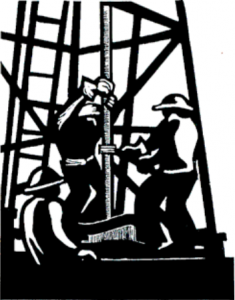For more than a decade, the United States has employed sanctions as a tool to punish the leadership of the Venezuelan government with the aim of forcing regime change in a country that had turned to socialism under Hugo Chavez. Along with mismanagement of the Venezuelan economy and a sharp decline in the price of oil, these actions by the US have contributed to hyperinflation, soaring rates of hunger, disease, crime and death, and massive emigration out of the country. With current actions by the US escalating the crisis, will the result for Venezuela be civil war or negotiations?
US laws reach into the pockets of foreign officials
Under various laws (Arms Export Control Act, Foreign Relations Authorization Act, Foreign Narcotics Kingpin Designation Act) Presidents Obama and Trump froze the assets of the Venezuelan government and various individuals on the grounds that they were involved in terrorism, drug trafficking, antidemocratic actions, corruption, etc. In December 2014 Congress passed the Venezuela Defense of Human Rights and Civil Society Act which opened the door to a more aggressive approach and broader economic sanctions.
Starving Venezuela of capital
In August 2017, President Trump issued an executive order prohibiting access to the US financial markets by the Venezuelan government, including Venezuela’s state oil company, Petróleos de Venezuela, PdVSA, with certain exceptions to minimize the impact on the Venezuelan people and US economic interests. The order also denied Venezuela any return of the profits from CITGO’s operations in the US.
These sanctions sought to restrict the Venezuelan government’s access to US debt and equity markets. Among the exceptions are transactions for new debt by CITGO, owned by PdVSA;transactions by US owners of Venezuelan/PdVSA bonds on secondary markets; financing for agricultural and medical exports; and short-term financing to facilitate trade
In March 2018, President Trump issued another order prohibiting additional financial transactions including any related to the purchase of Venezuelan debt, including accounts receivable,and to any debt owed to Venezuela pledged as collateral. US officials assert the action was intended to deny corrupt Venezuelan officials the ability to improperly value and sell off public assets in return for kickbacks.
More sanctions pending
On November 1, 2018, Trump issued an order setting out a framework to block the assets of, and prohibit certain transactions with, any person determined by the Secretary of the Treasury, in consultation with the Secretary of State, to be operating in a sector of the economy that involves deceptive practices. At times,the Trump Administration has indicated it was considering broader sanctions, such as an embargo on certain US exports to and/or imports from Venezuela (such as oil) or a prohibition on all financial transactions with PdVSA. So far, no one has been blocked under this order.
Making things worse isn’t always the best policy
Although stronger economic sanction could influence the Venezuelan government’s behavior, they also could have negative effects and unintended consequences. Analysts are concerned that stronger sanctions could exacerbate Venezuela’s difficult humanitarian situation, which has been marked by shortages of food and medicines,increased poverty, and mass migration. Many Venezuelan civil society groups oppose sanctions that could worsen humanitarian conditions.
Another concern is the effect that stronger sanctions could have on the US economy,including potential increased costs for US consumers and oil refiners that import Venezuelan oil. A complicating factor is that PdVSA owns CITGO, which operates three crude oil refineries, three pipelines, and numerous petroleum product terminals in the United States.
The information about sanctions in this article is excerpted from the Congressional Research Service report, Venezuela: Overview of US Sanctions, issued November 21, 2018.

Be First to Comment